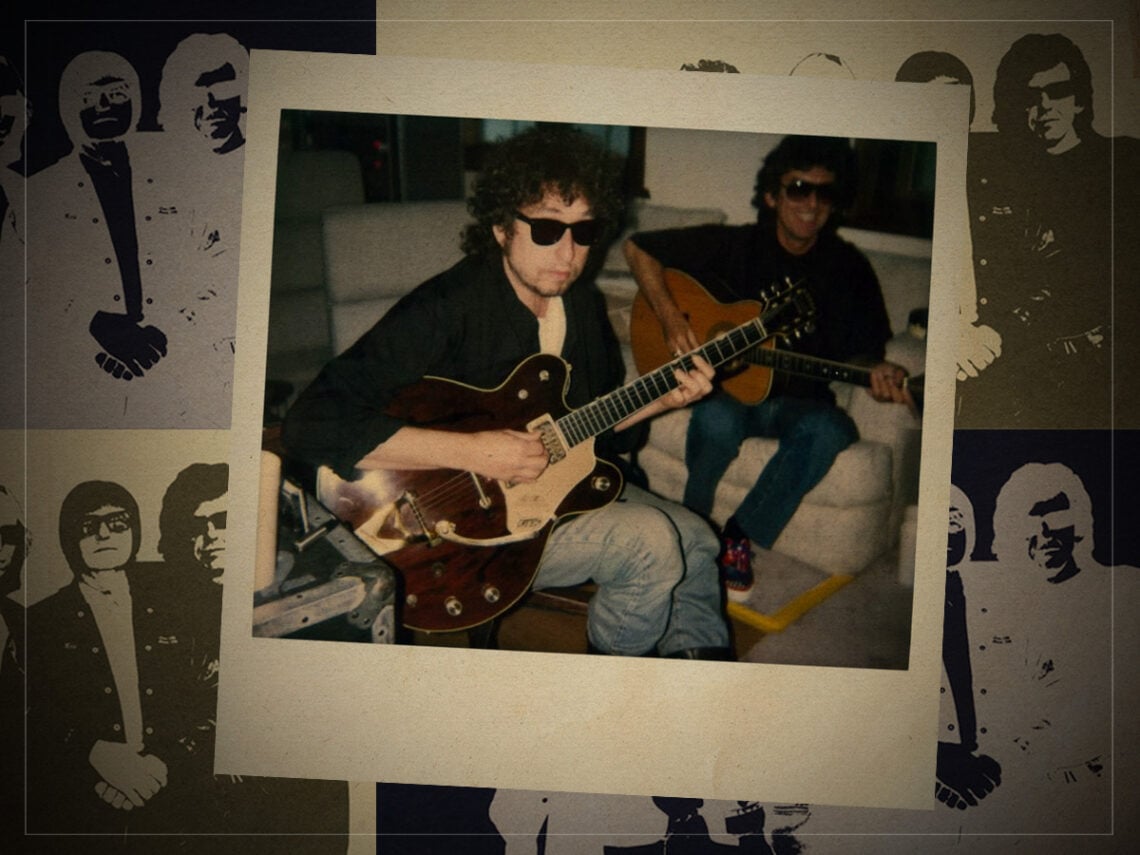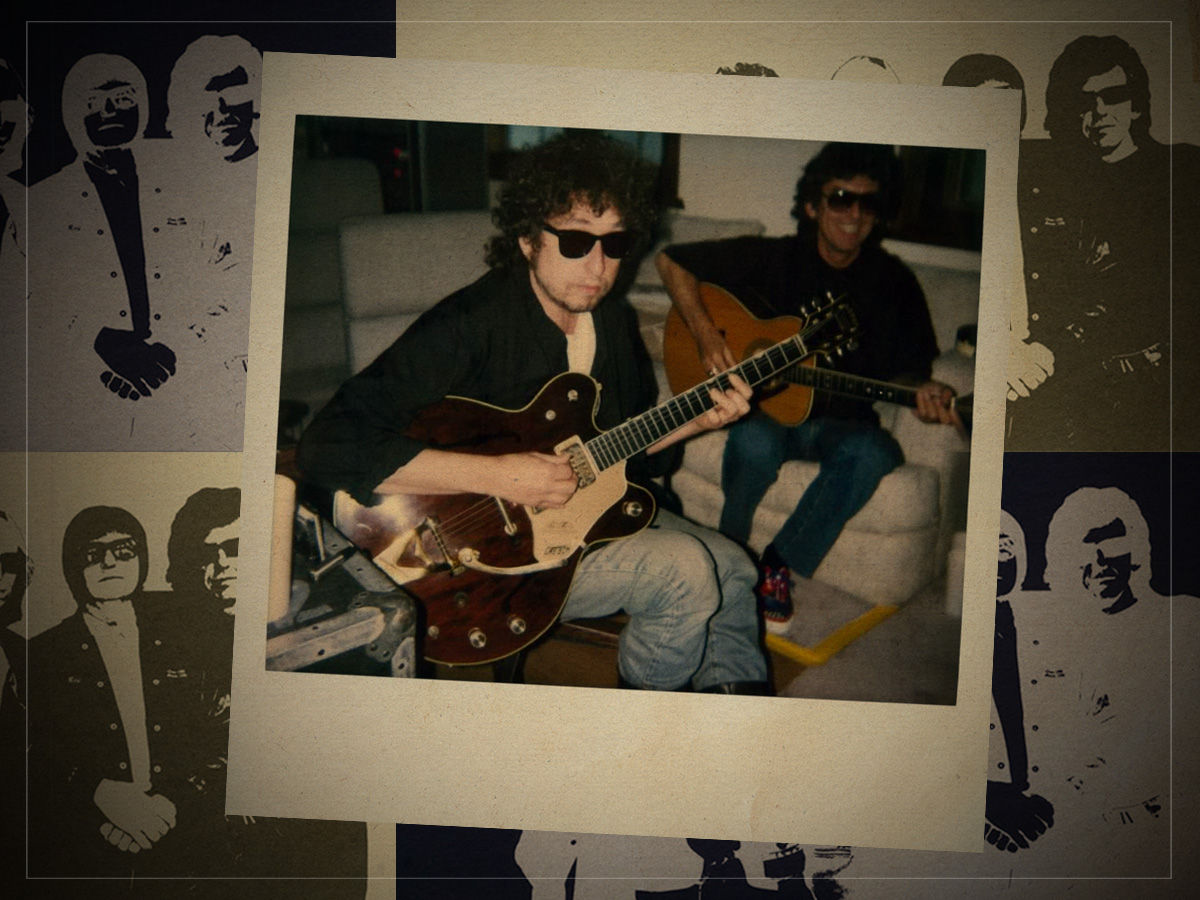
(Credits: Far Out / The Traveling Wilburys)
Mon 13 October 2025 17:30, UK
Surely asking a person to pick their favourite bandmate is a risky move, but when it comes to the Traveling Wilburys, with so many icons in one lineup, you’d hope their security in their talent was enough to make it fine.
The Traveling Wilburys were a supergroup like no other. It’s like if you took the very concept of a supergroup, which brings together different members of different units into one new band, and then put it into rock and roll overdrive. Forming in 1988, it featured the heroes of the 1960s and 1970s, including Bob Dylan and a Beatle.
It happened by complete accident, though, as a beautiful reminder that behind the scenes, heroes can actually be friends. George Harrison was already working with Jeff Lynne at the time, and one day they realised they needed some other piece of equipment, so they went over to Bob Dylan’s home studio, knowing he’d have it. At some point or another, Roy Orbison and Tom Petty came along, too, and suddenly the whole lineup was there.
While they were there, Harrison figured he might as well get them both to help with the song, which happened to be ‘Handle With Care’. By the time they’d finished it, it no longer felt like a Harrison track, but a single for a new project and a new band.
Each obviously brought skill and talent, but in their own unique ways. Each member brought their own strengths to the table, like Dylan’s lyricism, Harrison’s riffs or Petty’s ability to make a radio-ready hit. It would be wrong to rank them, but for Dylan, it was Roy Orbison who always stood out.
“With Roy, you didn’t know if you were listening to mariachi or opera. He kept you on your toes,” Dylan said as it was the surprise element of the singer that had him truly wowed, adding, “He sounded like he was singing from an Olympian mountaintop, and he meant business.”
While Orbison’s biggest hits like ‘Oh, Pretty Woman’ or ‘In Dreams’ might not scream technicality or complexity, Dylan saw exactly that in him. “One of his previous songs, ‘Ooby Dooby’, was deceptively simple, but Roy had progressed. He was now singing his compositions in three or four octaves that made you want to drive your car over a cliff,” he explained with a clear tinge of jealousy.
But overwhelmingly, Dylan’s feelings towards Orbison led to one niche likeness. “He sang like a professional criminal,” Dylan said, and who really knows what that means. Perhaps he’s trying to say that Orbison’s abilities are sneaky, that you would never guess them until they attack. Or maybe Dylan has simply heard a lot of crooning criminals in his time.
“Typically, he’d start out in some low, barely audible range, stay there a while and then astonishingly slip into histrionics. His voice could jar a corpse, always leave you muttering to yourself something like, ‘Man, I don’t believe it.’ His songs had songs within songs,” Dylan waxed lyrical about his bandmate, packing on the albeit niche praise. But then he stopped and said something simple and kind: “There wasn’t anything else on the radio like him.”
Related Topics
The Far Out Bob Dylan Newsletter
All the latest stories about Bob Dylan from the independent voice of culture.
Straight to your inbox.

